Doctor en nutrición y producción de Rumiantes de la Universidad Federal de Lavras (Brasil) y Zootecnista de la Universidad de Sucre. Linea de investigación en programación fetal. Interesado en entender como vacas lidan con la restricción nutricional durante la gestación para soportar el crecimiento fetal. Por tal razón he trabajado en conocer los cambios específicos de las matrices durante la gestación, así como los factores que contribuyen al lento crecimiento y desarrollo embrionario. El conocimiento obtenido por medio de está línea de investigación ayudará a los investigadores y/o productores a identificar estrategias e intervenciones de manejo para aumentar la eficiencia reproductiva y mitigar las posibles pérdidas de producción asociadas con las consecuencias de programar la descendencia a través del entorno materno en todas las especies de interes zootecnico. Experiencia también en alimentos y alimentación y producción de bovinos en sistemas silvopastoriles.
PROGRAMA: Medicina Veterinaria y Zootecnia (Cartagena)
CATEGORÍA MINCIENCIAS:
NIVEL DE FORMACIÓN: Doctorado
LINEAS DE TRABAJO:
PRODUCTOS DESTACADOS
PSVII-2 Differentially expressed genes and their biological function in skeletal muscle of calves born from cows with or without protein supplementation during mid-gestation
Fecha de publicación: 30/11/2020
Gestating cows have an increased nutrient demand to meet the needs of developing the fetus and the mid-gestation is a critical period for the fetal skeletal muscle development. The aim of this study was to evaluate the skeletal muscle transcriptome in the progeny as a function of the maternal protein nutrition during mid-gestation. Eleven Tabapuã cows and their male calves were used in this study. In the first third of ges-tation (0 to 100 days of gestation; dg), all cows were kept on pasture. From 100 to 200 dg, the control group (CTRL; 7 animals) received a basal diet achieving 5.5% crude protein (CP), whereas the supplemented group (SUPPL; 4 animals) received a basal diet plus protein supplementation (40% CP). After 200 dg, all animals received the same diet. Weaning was performed at 205 ± 7.5 days of age and animals were kept on pasture until reaching 240 days of age, when they were transferred to a feedlot. Muscle samples were collected at 260 days of age and RNA was extracted for RNA-seq analysis. Gene expression data was analyzed with a negative bi-nomial model to identify (q-value ≤ 0.05) differentially expressed genes (DEG) between treatments. A total of 716 DEG were identified (289 DEG up-regulated and 427 down-regulated in SUPPL group; q-value ≤ 0.05). From the 10 most significant down-regulated DEG in the SUPPL group, two genes associated with apop-totic process were identified: MAPK8IP1 and GRINA, with log2 Fold-Changes (log2FC) of 1.04 and 0.49, re-spectively. From the 10 most significant up-regulated DEG in the SUPPL group, mTOR was identified, with log2FC=0.31. This is a well-known gene involved in muscle protein synthesis. In conclusion, maternal protein supplementation during mid-gestation affects the expression of genes related to energy metabolism and muscle development, which can lead to long-term impacts on production efficiency
Más información ⇨
- « Anterior
- 1
- …
- 9
- 10
- 11
- 12
- 13
- 14
- Siguiente »

